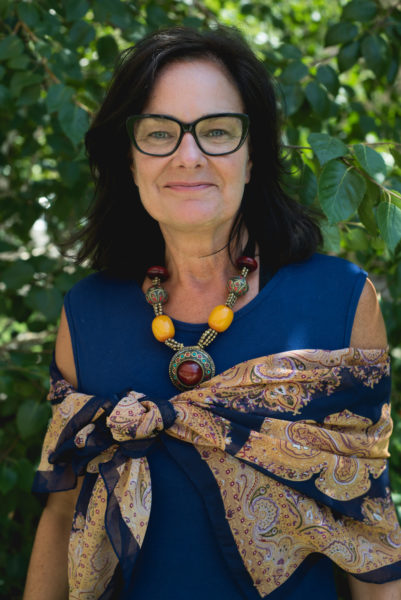York University expert available to explain impacts of digital overconsumption on youth
TORONTO, April 2, 2020 – Young people in isolation at home during the COVID-19 pandemic are becoming so immersed in social media that it could be damaging their emotional, physical and spiritual well-being, says Faculty of Education Professor Kate Tilleczek.
 With the COVID-19 school closures across Canada, youths are using their newfound free time to post TikTok videos of themselves complaining about the virus, lamenting about the healthcare crisis and doing choreographed quarantine dances.
With the COVID-19 school closures across Canada, youths are using their newfound free time to post TikTok videos of themselves complaining about the virus, lamenting about the healthcare crisis and doing choreographed quarantine dances.
Tilleczek, an expert on global youth well-being and the social development of youth, says the COVID-19 crisis has left many young people missing everything from cancelled sports games to human contact with their friends. She’s most concerned that they’re overconsuming “digital junk food” online to cope.
“Young people are using apps like TikTok to laugh, share, find joy and be social with their friends, but at the root of it, they’re looking for hope and a sense of belonging,” says Tilleczek, who is Canada Research Chair in Young Lives, Education & Global Good.
“Before the COVID-19 pandemic, youth were already struggling to gain balance in this digital world. My fear now is that young people are glued to their phones longer and are consuming more online content that’s not educational, considered digital junk food, that will send them further out of balance in terms of their well-being,” she says.
Tilleczek says there’s growing evidence that TikTok is not an open and equitable platform for young people and may have policies that encourage discrimination and bias.
She is urging youth to investigate the digital platforms they’re using, and take online breaks to reclaim their time, relationships and connections to nature. Digital cleanses from social media – even for just a few hours a day – are beneficial to their emotional, physical and spiritual well-being, she says.
Tilleczek has been examining how young people are living for the past three decades. As founder and director of the Young Lives Research Lab, she and her team led a five-year study of youth and the digital age in which they analyzed in-depth interviews with 185 young people, ages 16 to 24. Part of the study involved an experiment with youths living without their phones for a week.
Their study found that young people have a deep love-hate relationship with technology. They also have a deeply ingrained connection to their phones, while simultaneously feeling despair that technology is taking over their lives. Tilleczek’s research also showed that young people welcome the experience of a digital break to reclaim their time and relationships outside of digital spaces and screens.
She can comment on:
- Why TikTok is so appealing to young people during the COVID-19 crisis
- Tips for young people to survive digital breaks
- Why taking digital cleanses are a good idea during the pandemic
- How youths are spreading misinformation about the virus on TikTok
- The best ways for young people to balance their real life and their digital world
York University champions new ways of thinking that drive teaching and research excellence. Our students receive the education they need to create big ideas that make an impact on the world. Meaningful and sometimes unexpected careers result from cross-disciplinary programming, innovative course design and diverse experiential learning opportunities. York students and graduates push limits, achieve goals and find solutions to the world’s most pressing social challenges, empowered by a strong community that opens minds. York U is an internationally recognized research university – our 11 faculties and 25 research centres have partnerships with 200+ leading universities worldwide. Located in Toronto, York is the third largest university in Canada, with a strong community of 53,000 students, 7,000 faculty and administrative staff, and more than 300,000 alumni.
York U's fully bilingual Glendon Campus is home to Southern Ontario's Centre of Excellence for French Language and Bilingual Postsecondary Education.
Media Contact: Vanessa Thompson, York University Media Relations, 647-654-9452, vthomps@yorku.ca

